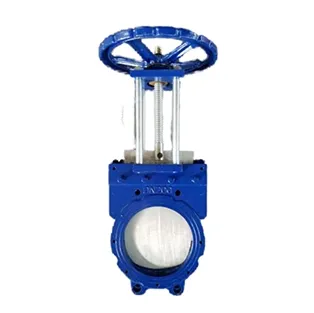needle valve
Understanding the Needle Valve A Comprehensive Overview
Needle valves are essential components used in various industries for precise flow control of liquids and gases. Characterized by their slender, tapered needle-like plunger, these valves provide exceptional regulation over the flow rate. They are especially important in applications where fine adjustments are crucial, such as in laboratory settings, fuel systems, and various hydraulic and pneumatic systems.
Structure and Working Principle
A needle valve consists of a main body, a seat (or port), a needle-like plunger, and often a handwheel or knob for operation. When the valve is in an opened position, the plunger retracts from the valve seat, allowing the medium to flow through. Conversely, when turned, the plunger pushes down into the seat, constricting the flow. Due to the needle’s design, even small movements of the handwheel can lead to significant changes in flow rate, making them incredibly useful for precision applications.
Needle valves are typically designed to handle a broad range of pressures and temperatures. The materials used in their construction are varied, ranging from stainless steel and brass to more exotic materials for corrosive environments. This adaptability makes them suitable for everything from water supply systems to chemical processing.
Applications
One of the primary applications of needle valves is in laboratory environments, where precise flow measurement and control are critical. In these settings, needle valves can help regulate gas flows for experiments or manage liquid flow in chemical reactions without introducing turbulence or additional pressure drops.
In the automotive industry, needle valves play a crucial role in fuel injection systems. They control the fuel supply to the engine, ensuring optimal combustion and performance. In Pneumatics and hydraulics, needle valves are often utilized to adjust and restrict flow in air and hydraulic lines, allowing for smooth and controlled actuation of cylinders and motors.
Another area where needle valves find usage is in the gas industry. They can be used to control gas flow rates in various processes, from natural gas distribution to specialized gas applications in manufacturing. The precision they offer can prevent excessive flow that might lead to dangerous conditions or equipment damage.
needle valve

Benefits of Using Needle Valves
The primary advantage of needle valves is their ability to provide precise flow control. This precision is essential for processes that require meticulous measurement and adjustment. Their design allows for throttling of flow, which is much more difficult with other valve types such as ball valves or gate valves.
Additionally, needle valves are typically more compact, making them suitable for installations in tight spaces. Their overall design minimizes pressure drops, helping maintain system efficiency. They also can be adjusted easily, allowing for fine-tuning of flow rates without the need for additional equipment.
Considerations
While needle valves provide many benefits, they also have limitations. Due to their design, they are generally not suitable for high-flow applications; they excel in low-flow scenarios. Additionally, over time and with heavy use, the needle and seat can wear out, requiring periodic maintenance or replacement.
Selection of the appropriate needle valve involves consideration of various factors, including material compatibility, pressure ratings, and flow requirements. It is vital to consult product specifications and choose a valve that aligns with the specific needs of the application to ensure safety and efficiency.
Conclusion
Needle valves serve as a vital part of many systems, enabling precise flow control in a wide array of applications. Their unique design allows for fine adjustments that are crucial in laboratory, automotive, and industrial settings alike. By understanding their structure, function, and best use cases, industries can optimize their processes for better performance and safety. As technology progresses, needle valves will continue to evolve, offering even more sophisticated means for regulating flow in complex systems.
-
The Key to Fluid Control: Exploring the Advantages of Ball Valves in Industrial SystemsNewsJul.09,2025
-
The Versatile World of 1, 2, and 3 Piece Ball ValvesNewsJul.09,2025
-
Stainless Steel Ball Valves: The Ideal Choice for Efficient Flow ControlNewsJul.09,2025
-
Optimizing Fluid Control with Ball Float ValvesNewsJul.09,2025
-
Manual Gate Valves: Essential for Control and EfficiencyNewsJul.09,2025
-
Everything You Need to Know About Butterfly ValvesNewsJul.09,2025
-
The Versatility of Wafer Type Butterfly ValvesNewsJul.08,2025




